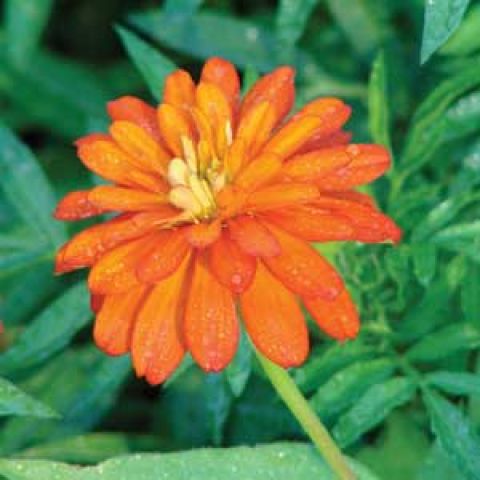 Plants have botanical names, often called “Latin names.” Until recently these names were fairly simple and agreed-upon worldwide.
Plants have botanical names, often called “Latin names.” Until recently these names were fairly simple and agreed-upon worldwide.
A plant’s scientific name is its genus and species in italics, plus—if it’s a selected variety—its cultivar name. Example: Monarda didyma ‘Jacob Kline’. A cultivar name should be enclosed in single quotes and there are international rules governing what can and cannot be a cultivar name.
Increasingly, though, cultivated plants are being given a third type of name: a trademarked name. Yes, just the way Tylenol and Kleenex are registered trademarks, now a plant’s name can be owned by a company or individual. These plants still have a cultivar name, but it is purposely designed to be a name you wouldn’t want to use, such as ‘Pas 553645’. This way, people who sell and write about plants are steered into using the trademarked names, such as, in the case of the photo used in this blog post, Zinnia Zahara Double Fire. Much prettier.
There are several problems with this practice, but for us at the Friends School Plant Sale, our difficulty is that we want to give you accurate information about each plant, including its correct name.
It has become very hard, and often impossible, to distinguish between a plant’s trademarked and cultivar names or even to find out what the cultivar name is. Also, the internet is full of errors in naming plants. It already takes several people months of careful research to provide our customers with good information on our hundreds of new plants every year.
So, though it makes us sad to do it, we reluctantly decided to adopt this way to list plants in the catalog. We still give the common name and the Latin name, but the “variety” name we list could be:
- a cultivar name without its single quotes,
- a trademarked name without its ™ or ®,
- part of its Latin name, common name, or just its color description.
Actually, unless you are as interested in plant names as we are, you will hardly notice any difference, except for the lack of single quotation marks. The name we list will be the name that, unless you exclusively use Latin names, it makes sense to call the plant.